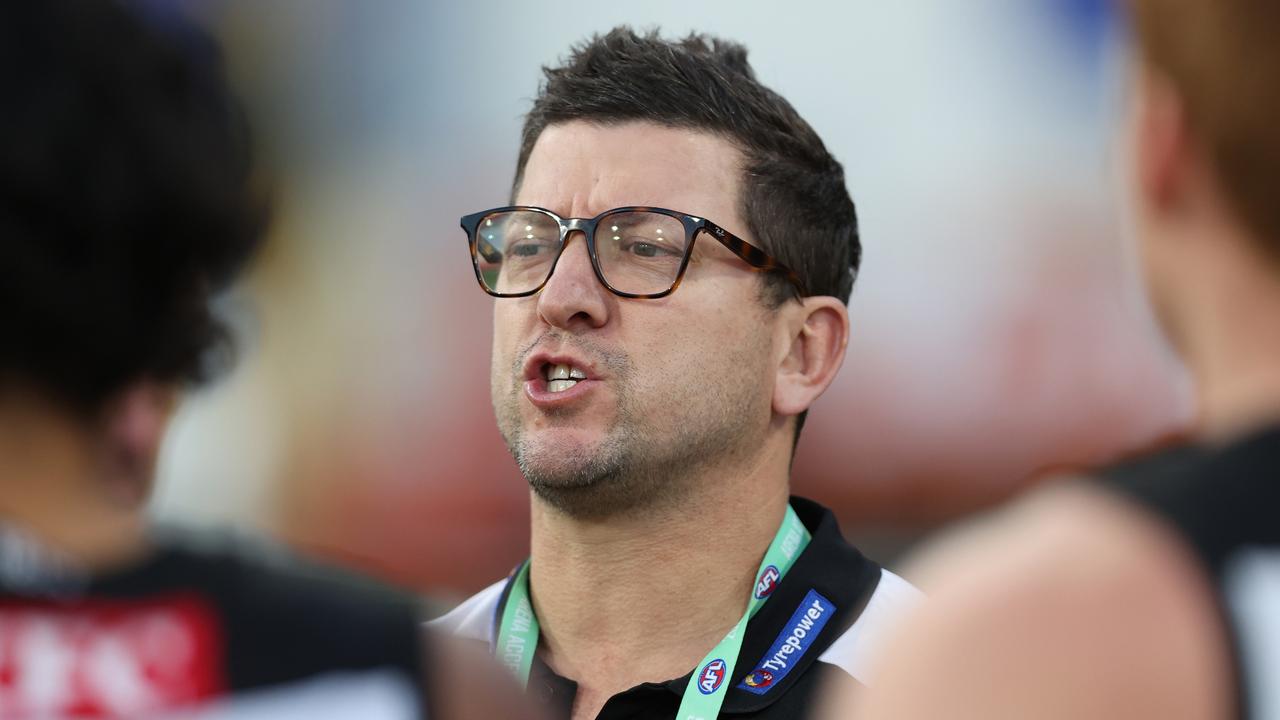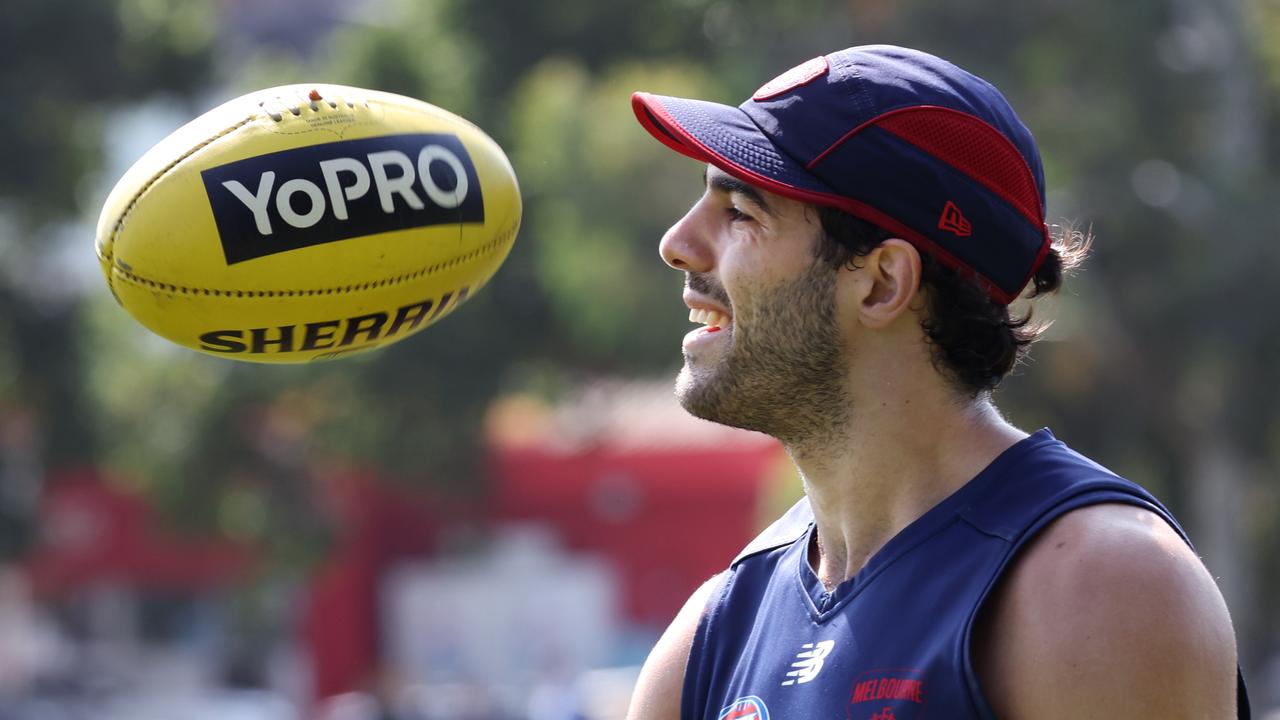Mark Robinson: Assessing former coach Nathan Buckley’s influence on Collingwood’s breakout season
Matthew Rendell thinks Nathan Buckley is rewriting history, but a Bulldogs legend doesn’t see it the same way. Mark Robinson assesses Buckley’s influence on Collingwood’s rise.
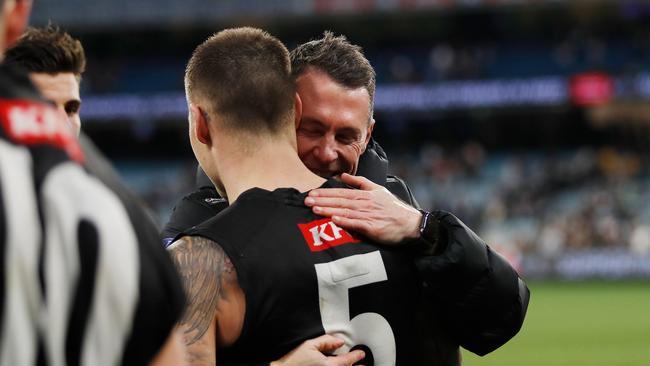
AFL
Don't miss out on the headlines from AFL. Followed categories will be added to My News.
The flinch reaction to Nathan Buckley’s declaration last Friday that Collingwood’s success this year was “five years’’ in the making was that Buckley was trying to claim credit.
That he wanted the world to know that his fingerprints were on Craig McRae’s success this season.
“I’m going to suggest – and I’ve been involved in the footy club – but this is five years of good footy with a bad year last year,” Buckley told Fox Footy.
“The nucleus of this side is established and we’re seeing some young players come in and play really big roles – and it’s brilliant and it’s exciting to see.
Watch every blockbuster AFL match this weekend Live & Ad-Break Free In-Play on Kayo. New to Kayo? Start your free trial now >
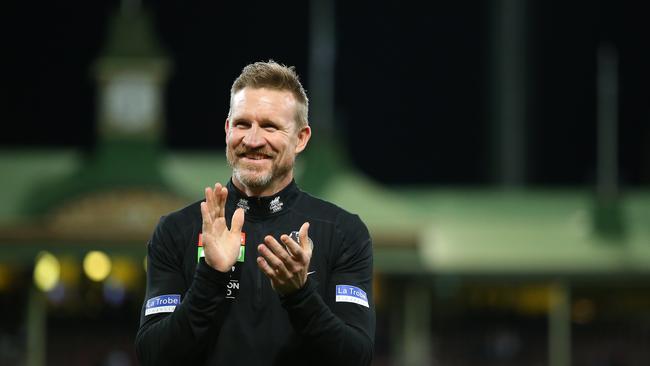
“This Collingwood side has exceeded my expectations. I thought they were 15 wins at the top end – and they’ve still got two more to go.
“What ‘Fly’ (McRae) has done has been amazing, but it’s been built off the nucleus of a senior core that have been there for five or six years doing this now.”
Read that again.
Is Buckley taking credit?
Or are we wanting to think Buckley is trying to take credit?
Maybe the lifelong narrative Buckley has had poured on him and presented to the public as fact, that he is a completely self-centred individual, meant we are condition — even brainwashed — to believe Buckley is an egomaniac.
Maybe he is. And the comments last Friday were of a man wanting to remind the footy world that the Pies were a good side who had “a bad year’’ before McRae arrived.
But maybe Buckley was right. The Pies were a good team but had been driven into a brick wall emotionally. And all McRae did was back the car out, dust it off, polish and shine it, give it love and trust, and hit the highway once again.
From 17th last year to second on the ladder at round 21 this year logically suggests “the nucleus’’ is five years in the making.
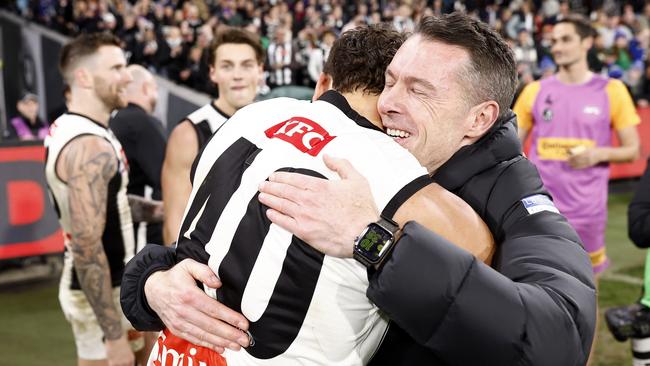
Buckley would say he wasn’t talking about himself, that he was talking about the whole football program over the past five years, made up of 100 individuals, who helped the Pies get to the 2018 Grand Final, and the 2019 preliminary final, and the 2020 finals.
He would say he was praising the “nucleus’’ and maturing of players, such as Brayden Maynard, Brody Mihocek, Darcy Moore, Jamie Elliott, Will Hoskin-Elliott, Taylor Adams, Isaac Quaynor, Josh Daicos and Darcy Cameron, for example, and that they had joined veterans in Scott Pendlebury, Steele Sidebottom and Jeremy Howe, to form that nucleus.
From that initial flinch reaction emerged the broader question: How much credit should the immediate former coach have for the success of the current coach — or if any at all?
Like, does Buckley really deserve credit for the Pies of ’22?
Does Bomber Thompson for Chris Scott? Or Ross Lyon for Justin Longmuir, or Paul Roos for Simon Goodwin, or Justin Leppitsch for Chris Fagan?
The “flinch reaction’’ from Matthew Rendell was that Buckley was rewriting history.
Rendell — who was sacked by the Pies — is Buckley’s No. 1 critic. He says Buckley mostly had an issue about maintaining morale in the playing group, that Longmuir was the mastermind of the defence and ball movement through the successful 2018-19 era, and that by the end of his career, the playing list was spiritually broken.
Rendell says Buckley deserves credit for one aspect of his coaching.
“He deserves credit for allowing Longmuir to do the defensive aspect of the game, which has carried them through to today,’’ Rendell said.
“So, if he’s talking about it being five years in the making, the defensive aspects have been five years in the making. Nothing else has been in the making for five years.
“There’s nothing because they were seriously broken at the end of 2020 and he probably should’ve gone at the end of 2020 after the fire sale debacle, and after he threw the players under the bus with Adam Treloar.
“It was never going to recover from that.
“The spirit and morale was non-existent and the lack of trust was huge.’’
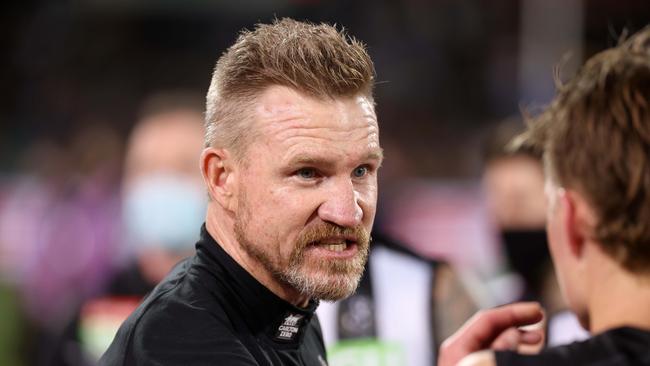
Brad Johnson was the polar opposite to Rendell on Buckley and, more widely, was firm on his belief that all coaches leave a marker for the next coach, even North Melbourne’s David Noble for the incoming coach, presumably Alastair Clarkson.
Neil Balme, who was head of football at Geelong, Collingwood and Richmond, was pointed when asked what a former coach left for the new coach. “Stuff all really, because he’s gone,’’ Balme said.
“Bomber Thompson was a damned good coach and Geelong were a terrific club and had good teams, but the next bloke had to take over. He had to take control, work with the players, and the players with him, and that’s what Chris Scott did really well. That’s what Fly (McRae) is doing also, no doubt.’’
Johnson — who is great mates with Buckley — said Buckley had a “huge influence’’ on individuals at the Pies and “in some ways their approach to the game, no question.’’
“As coach, that’s what you should be thinking because you have had a positive effect on the group,’’ Johnson said.
“Although the job ends, I think Bucks can look back and certainly say there are aspects he would be seeing that he taught and is still seeing now. And he’s just seeing new layers to it from a perspective of a fresh approach from Craig McRae.
“It’s like Dave Noble at North Melbourne. Although the influence he had didn’t last very long, what he’s given in terms of experience and teachings to some of these younger guys, a coach coming in now, and even if it’s Clarkson, that work is done for you. So you take a little bit of credit because you’ve done a bit of work to assist the process going forward.
“All coaches should think in that fashion.’’
Johnson, who was a Bulldogs great, said Brendan McCartney, who was sacked for Luke Beveridge at the end of the 2014 season, had fingerprints on the 2016 premiership.
McCartney coached for three seasons and at the end, and not unlike Collingwood but for different reasons, the spirit of the playing group was broken.
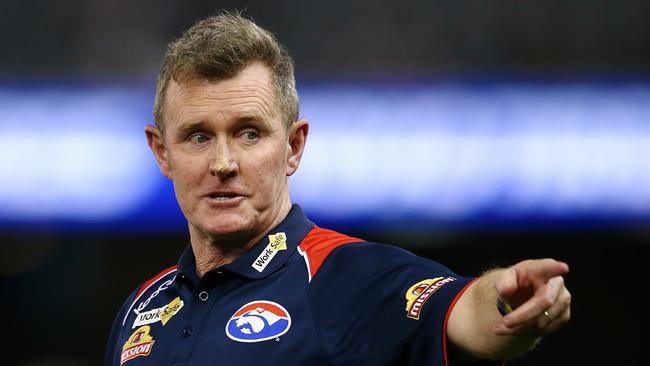
Still, McCartney had an influence on the flag. “No doubt he had an influence,’’ Johnson said.
“We understand why the change is made, but while the person is there, they actually achieve in what they teach and educate and develop how certain individuals play, or the way the collective can play.
“The contested ball is McCartney’s go-to in terms of being able to teach it. You talk to the Geelong boys and the way they were taught contested ball and positioning was an important facet of the game.
“There was that aspect and then Bevo had the ability to turn that into, win the hard ball and share it around by hand, and he had that trick to flick it around. They already had numbers and shape at the contest because, I think, of the fact it had been taught in the past.
“That’s my observation from the outside.
“But I still think the coach regardless of the change made, and whether they lose the group or don’t get the results they think they can, that phase of development comes through.
“There’s no doubt Brendan McCartney had an influence on the way some players play their footy around the ball.’’
Johnson explored even further, going back to when Peter Rohde was sacked for Rodney Eade in 2004.
“Rohder gave opportunities to Farren Ray and Adam Cooney and all these youngsters we had, and then when Rodney Eade came two years later, they had had their games, they had got their taste, and then Rocket with his tactical nous and ability to teach the individual, took us all to a level we didn’t expect,’’ Johnson said.
The same could be said of Justin Leppitsch at Brisbane, for example. Leppitsch coached the Lions for three seasons — 2014-2016 — and in that time played the likes of Eric Hipwood and Harris Andrews. Both looked like they weighed 60 kgs, but still Leppitsch set them on their way, and Fagan benefited.
Balme, who is one of the most respected club figures, believes coaches forge their own identity with a group.
Asked if Chris Scott inherited a great team — which is a popular and albeit shallow narrative — but also a mentally broken team, Balme said: “I don’t know if they were mentally broken.
“We were still a pretty strong team and we still had a decent list, but you could draw the conclusion that they were puffed out, they were mentally, um, they had done their work.
“And for Chris to get them up in 2011 was extraordinary. No one gives Chris any credit.’’
At the Demons, one opinion is Roos set the foundations for Goodwin to flourish. Another opinion is Goodwin won the premiership because he changed the game plan which Roos invested in, which was heavy numbers at the contest. Goodwin deserves more credit, one Demons official said.
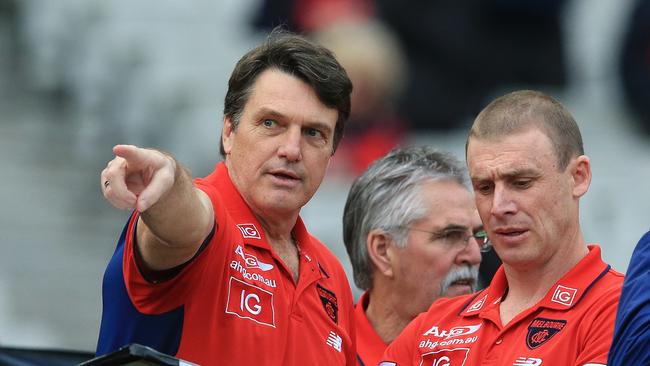
Back to the Pies, and it must be noted Buckley smothered McRae with praise. Because in McRae, he must see a coach who is naturally warm and empathetic and mostly always happy and that reflects majorly on the playing group.
So, under McRae, are the Pies the same or are they the same but different, if that makes sense? You could mount an argument that the Pies of 2018, which failed by a kick against West Coast in the GF, played with the same panache and excitement, as McRae’s boys play today.
Indeed, Pies skipper Scott Pendlebury said last Saturday that the Pies in ’22 were defensively similar under McRae to what they were under Buckley, but offensively they were vastly different.
That’s confusing a little bit because we are told offence complements defence and vice versa, and the Pies last year were bogged down, played a lot of sideways footy, and played boring footy.
In contrast, McRae’s defence is the charge of the light brigade, so let’s agree that McRae has been a gale force of positivity and freshness.
As for Buckley, his comments last Saturday certainly raised eyebrows and, to be fair, we’ve been raising our eyebrows about Buckley for about 30 years now, for all kinds of reasons, including for his playing brilliance. Clearly, he’s been a towering figure.
Maybe he deserves credit for being honest with his assessment last Saturday and for being a good coach, and for overseeing the making of this current group.
Maybe, subconsciously, he wanted some reflective glory and he spit balled aloud.
After all, there’s a flinch reaction in everyone.
More Coverage
Originally published as Mark Robinson: Assessing former coach Nathan Buckley’s influence on Collingwood’s breakout season




